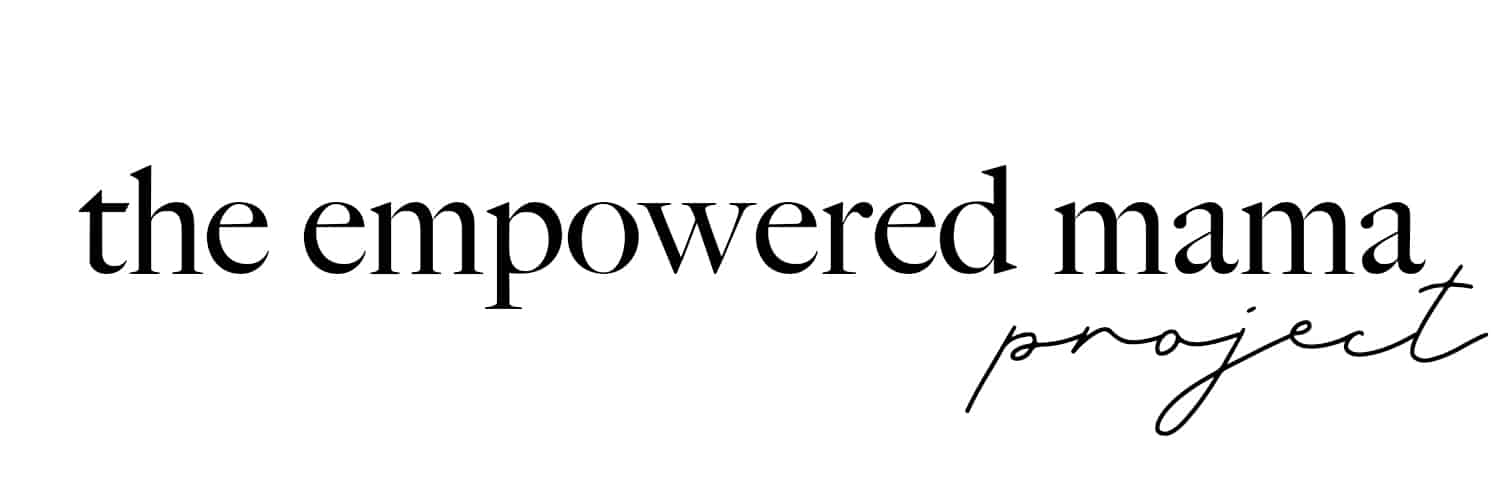The first week with a newborn can be tough.
If this isn’t your first rodeo, you probably already know what worked for you last time, and what didn’t!
But whether it’s your first or third baby, I don’t think it gets any easier, it’s just the challenges may look a little different.
We often hear women say ‘I wish I’d known…’ or ‘no one ever tells you…’.
So here it is.
We are telling you.
Hopefully, you’re reading this before your babe has arrived earthside and you have time to prepare.
But if you’re already in the trenches, you’ve got this Mama. Read on – it may just be the push you need to do what many women struggle to do… slow down, lower expectations, and ask for help.

Professional Breastfeeding Support
I’m not just talking about any ol’ Midwife here.
I’m talking about going straight to the expert and having a consultation with an International Board Certified Lactation Consultant (IBCLC).
I can say this, because I am a Midwife, and I’ve worked with hundreds of Midwives – they can’t help you the way an IBCLC can.
Midwives are trained to support breastfeeding mothers in University, then may not have any ongoing, updated education ever.
Even still, that education may not be comprehensive (or evidence-based) enough to truly help women learning to breastfeed and/or experiencing challenges with feeding.
Plus they don’t always see women past the first week to get an understanding of the long term challenges of breastfeeding mothers.
It’s all about recognising the scope of practice, and that every Midwife has a different level of knowledge and scope.
Get it straight from the horse’s mouth and invest in having at least one session with an IBCLC.
They are worth their weight in gold, and no amount of scouring the internet could educate you as much as an IBCLC.
Even as a Midwife, I wish I had invested in an IBCLC when my son was born – my nipples would have thanked me.

Order In
Yup!
Quick and easy food will be your saviour in the first week.
But we need good nutrition to help recover from birth and fuel our sleep deprived body.
So how do you maintain a nutritional diet still?
Order in from friends and family instead of fast food chains.
The phrase ‘let me know if I can do anything’ gets thrown around a lot – but very rarely do we take people up on it.
Home cooked meals that can go from fridge or freezer to oven are a God send in the first week at home with a newborn.
Even if you’re in hospital, the standard meals could be porridge that resembles Clag glue, white bread, dry crackers, and vegetables that have been cooked enough to make sure they’re dead.
If the help isn’t being offered, get good at asking, no, telling people what you need.
Or you could strategically trade a visit with the new baby (wink) for some decent pre-made meals… and maybe some chocolates too.
Now for the Mamas who have had bubs before – putting pressure on yourself to do a big cook up day of meals for the freezer, while you have ankle biters running around and smearing Sudocream everywhere, does not count!
We know you’re awesome at multi-tasking, but nurture yourself just as you would the first time around, and delegate the job to everyone else.

Smart Google Searching
The internet can be friend and foe. We all know that.
But it is next to impossible to be a new Mama and NOT Google search random ridiculous things.
So I’m not going to tell you to stay away from the internet – we are a tech savvy world and sometimes (a lot of the time) we want answers!
But I will say be smart about it.
If you find yourself searching ‘how to get baby to sleep longer’ or ‘how to tell if you have enough milk?’. BZZZT! Not smart Googling.
You’re opening yourself up to a world of misinformation, opinions, and harmful advice.
Instead, use the internet for good and get educated.
Look up good resources, like the Australian Breastfeeding Association or La Leche League. Or find the contact details for an IBCLC.
Watch YouTube videos on getting a good latch and gentle parenting strategies.
Look up how to support the developmental needs of your newborn, or ways to settle infants without leaving them to cry or go against your ingrained instinct as a Mama.

Refuse To Clean
Now saying ‘refuse to clean’ is very different to saying ‘ignore the mess’.
It is impossible to ignore – as two Mamas with OCD tendencies, we get that.
But the reality is your first week with a newborn should be spent doing nothing but resting, snuggling, feeding, and repeat.
The vacuuming can wait, even the dishes and laundry can wait… or be done by someone else.
My inner feminist is screaming ‘why can’t someone else do the @#$%ing cleaning!?’.
What I’ve learnt is that it’s not so much about doing it, but caring about it.
My husband could not care less if the house was a pigsty, so the mess just doesn’t prompt him to clean, or at least straighten up.
But he does care about me.
And in those first weeks with our son at home, if I communicated with him that the mess was stressing me out, BOOM, the magical cleaning fairy appeared.
Mom guilt is a very real thing.
We are our own worst enemy. But be like Elsa and let it go.
Another option is to ask visitors to help out.
Or if you’re not comfortable with that they could cuddle bub while you get some jobs done.
Again, my inner feminist is wondering where’s Dad in this equation.
But if he’s anything like my husband, he’s probably busy playing host, making meals, working, getting as many jobs done as he can, settling babe so Mom can have a shower, a nap, or her nipples can have a break.
They may not have the huge physical implications of birth, but Dads get busy and mentally/emotionally overwhelmed too, and they should be able to rest and enjoy bonding time with their little baby.

Healthy Sleep Habits
Sleep is near impossible at the best of times with a newborn.
Regardless of the fact that they are biologically designed to wake and feed frequently, when you birth a baby and the placenta detaches from your uterus, you are flooded with hormones that create a hypervigilant fierce Mama protection like no other.
‘Sleep when the baby sleeps’ is a laughable attempt at encouraging Mamas to get rest.
In reality, when the baby sleeps, even if we lay down too, we are often plagued with the thoughts of a mounting to-do list, staring at the baby, the dogs start barking, the postman knocks, someone calls or texts, anxiety over the baby’s colour, breathing, temperature and/or weird noises, OR we get lost in Facebook scrolling mode because we are desperate for some me-time.
It is hard enough to sleep as is, so practising healthy sleep habits is really important to surviving the first week with a newborn, and getting as much sleep as possible.
Limit caffeine intake, particularly in the evening or prior to a potential nap. Yes. I know you NEED coffee, but you need sleep more.
Unplug from technology – turn your phone to ‘do not disturb’, get televisions out of the bedroom, avoid watching TV late into the evening, and resist the urge to mindlessly scroll social media!
Even for a few minutes. Give your mind the chance to wind down.
Allow your natural melatonin to do its job and turn down/off all the lights in the evening.
Or have candlelight instead.
And be firm on yourself.
If baby is napping, make it your challenge to not do anything, to just lay down and rest, or have a hot shower then jump into bed too.
It is easier said than done, but don’t be your own worst enemy when it comes to sleep.

Relationships
When a new baby enters a family, lots of relationships are being formed, and previous relationship dynamics change.
In the first week, it is a lot easier if everyone understands this. Mom and baby need to find their groove, but so does Dad.
Just as it is crucial to Mom and baby’s wellbeing that they have the emotional and practical support of Dad, it is crucial that Mamas stand back and let Dad figure out their own way of doing things. If we allow this, they will find their own magic, and become more confident in their fathering and develop a better bond with baby.
It may be really irritating to watch them fumble their way through, to do things differently to how we would do it, but ultimately this is how a man grows as a father.

Limit Visitors
I’ve heard a lot of fourth-trimester conscious families say it’s really nice to not have an inundation of visitors in the first week.
Everyone puts their own spin on it.
Some tell their friends and family they are happy for visits at the hospital, but then they’d like a few days at home to themselves.
Some just have immediate family and closest friends visit in the first week, and everyone else can wait.
You may be worried about offending people – don’t be.
People are actually quite understanding when it’s pointed out to them that you need space.
Space to recover, to learn to feed, to bond with your baby, to breathe.
Personally, I see a lot of new parents struggle when they have lots of visitors in the first few days, whether in hospital or at home.
You’re tired, overwhelmed, learning and falling in love with your new baby, sore, disturbed by Midwives & Doctors wanting to check on you and baby, bothered by other women on the ward and their crying babies and noisy visitors.
Protecting this sacred time isn’t just about making it easy on you and babe, it’s about setting yourselves up for better outcomes with bonding and breastfeeding.
Kangaroo Care
Ooooh those gorgeous squishy newborn cuddles.
The smell of their newness, the feel of their soft skin, the sound of their breathing and weird little squeaks.
Perfection.
Those gooey feelings you get are oxytocin! The hormone of love, bonding, and breastfeeding.
Kangaroo care is likened to skin-to-skin contact.
It has huge benefits for both Mom and baby.
The key ingredients are keeping your baby close, responding to their cries through touch, held on a main carer often, and skin-to-skin time beyond the first hours after birth and into the first week.
How does it help you survive the first week?
A more settled baby, statistically increased breastfeeding rates, more confidence as a Mama AND Dad, and more oxytocin/prolactin = more milk and more bonding.
Not to mention the hands free benefit of kangaroo care through babywearing!

Delegate Small-Child Minding
Yikes. As Mom of one my worst fear is welcoming a new baby and keeping life running as smooth as possible for Master 2.
I see the difficulty in this time and time again for clients and friends.
What always seems to work best for new parents is having someone else, maybe a close relative, take said small child out.
Little people need to burn off energy, and they need one on one time to be emotionally supported through this transition.
Getting out to the park with Dad, or playing their favourite game while Mom and baby nap can fill the love cup for little people too.
But it is sometimes just as exhausting for both parents if Mum is looking after baby and Dad is looking after toddler. Everyone needs a break sometimes.
If they have a great relationship with Grandparents, it can be quite a novelty to get to sleep over or have a day out with them, and it also helps them feel like they are special too, and it’s not all just about the new baby.
Get Some Fresh Air
As much as we emphasise the importance of slowing down and sticking around home for the first week, no one likes being cooped up in four walls for any long period of time.
It’s not good for your psychological and emotional wellbeing.
Short, easy trips out can do wonders for you.
Depending on how feeding is going and what number baby this is, some forward planning may be required. It’s always tough, getting out for the first time.
But don’t fear it.
Acknowledge that you and baby are learning, and put in place strategies to make it easier for you.
Is there a parents room easily accessible? What is the best time of day for baby to go out? How can you reduce overstimulation for baby? What are your needs?
It may be as simple as going for a short walk, or spending time in the garden most days.
Or you could get out to a local park or cafe, or even go for a drive (if bub is a happy traveller).
And if it’s all just too hard, that’s ok – and normal.
Stick to the back yard, or your street. But get outside into the sunshine and fresh air, and soak up the Vitamin D. It can help clear up any jaundice baby may have too.
So now you know how to survive the first week, why not learn how to make the fourth trimester a positive experience! We’ve written about it here.


















